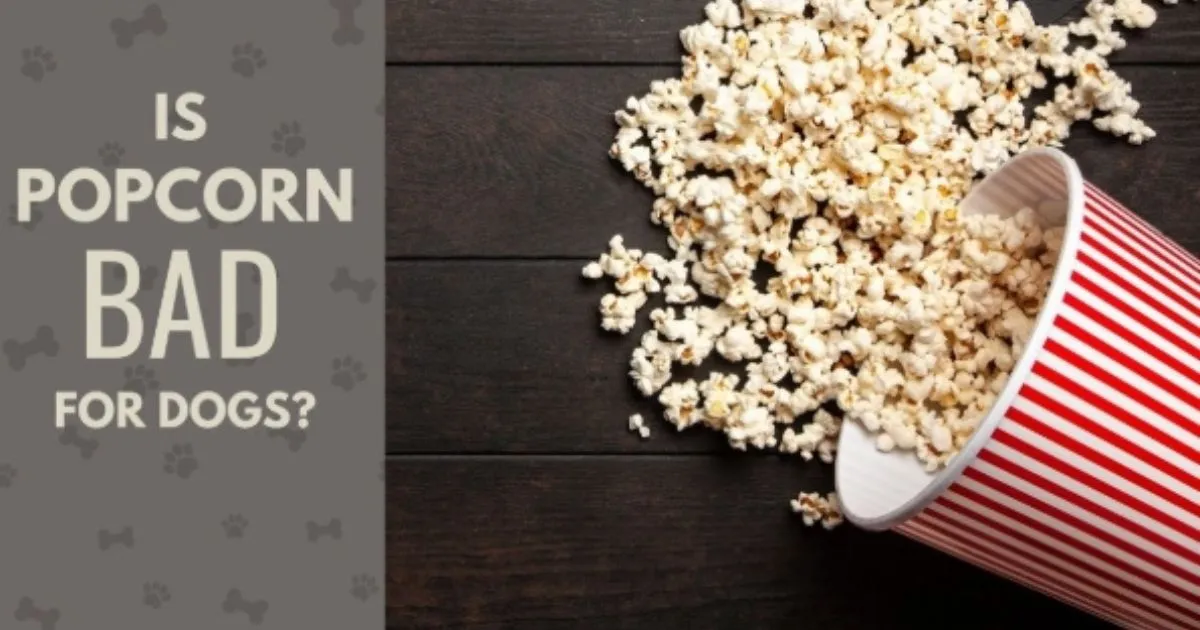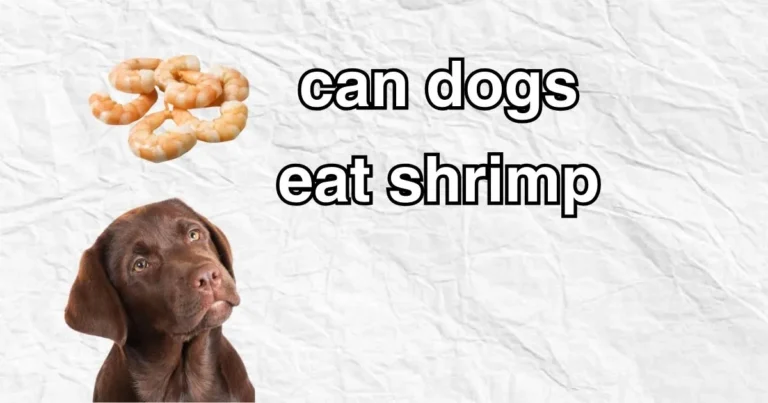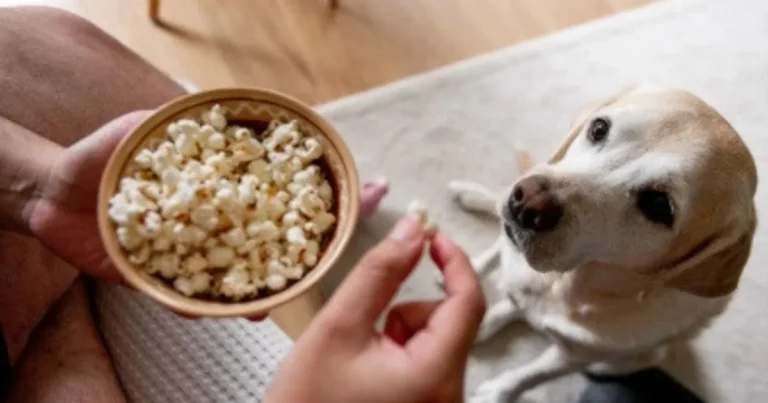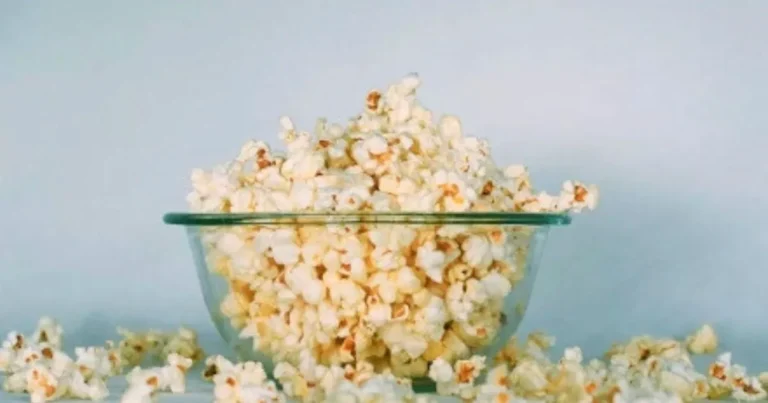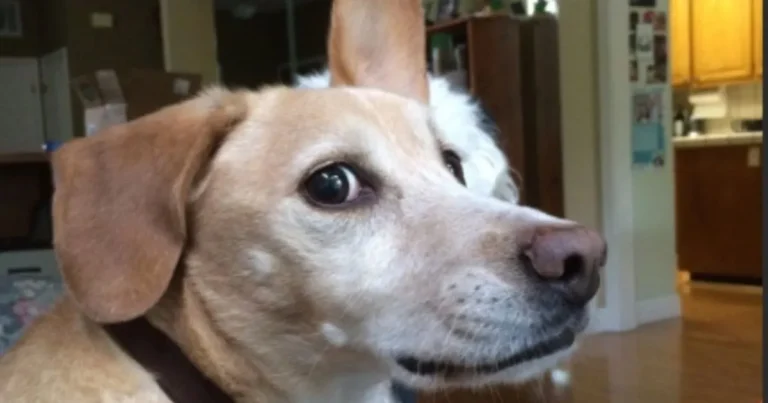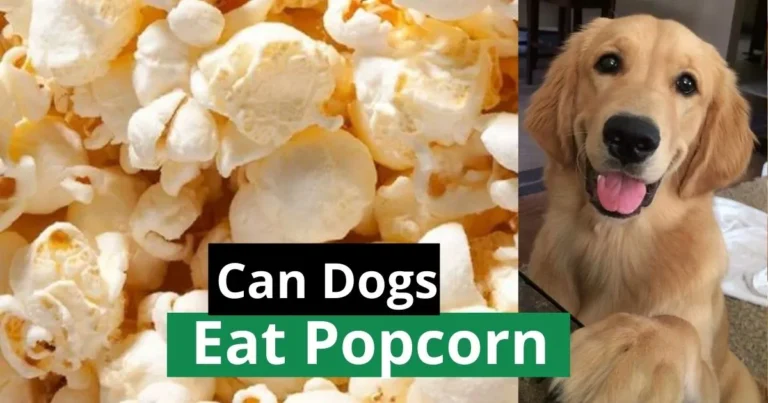Is Popcorn Bad for Dogs? What Every Dog Owner Should Know
Table of Contents
Is Popcorn Bad for Dogs?
Every dog owner has seen those puppy eyes when they’re eating a snack. Popcorn is often a tempting treat to give them. But, is it safe for dogs? Knowing what foods are safe for your pet is crucial for their health.
Whether dogs can eat popcorn is a complex question. Not all popcorn is the same. Some types can cause stomach problems or other health issues in dogs.
This guide will help you understand dogs and popcorn better. We’ll look at the safety, risks, and how to share popcorn with your dog. You’ll learn about air-popped popcorn and seasoned varieties. You’ll get expert advice on whether popcorn is safe for dogs.
Understanding the Basics of Dogs and Popcorn
Looking into the world of popcorn and dogs is important. We need to know what popcorn is made of and how dogs react to it. It’s key for pet owners to understand if popcorn is safe for their dogs.
What Makes Up Popcorn
Popcorn is a simple grain that changes when heated. It’s made of:
- Whole grain corn kernels
- Water inside the kernel
- Starch that makes it pop
Nutritional Content of Plain Popcorn
Plain air-popped popcorn is good for dogs. It has important nutrients like:
| Nutrient | Amount per Cup |
|---|---|
| Magnesium | 34 mg |
| Phosphorus | 29 mg |
| Zinc | 0.3 mg |
| Fiber | 1.2 grams |
How Dogs Process Corn Products
Dogs can digest corn, but differently than humans. Popcorn safety for dogs depends on how it’s prepared and given. Plain, air-popped popcorn without salt or butter is okay for dogs sometimes. But, they should only have it in small amounts.
Even though popcorn isn’t harmful to dogs, it shouldn’t be their main food. Always talk to a vet before giving your dog new foods. This ensures they get treats safely and responsibly.
Is Popcorn Bad for Dogs: Safety and Risks
Thinking about whether popcorn is bad for dogs? It’s not a simple yes or no. Air-popped popcorn in small amounts might be okay. But, there are some big safety concerns to keep in mind.
Unpopped kernels are a big danger for dogs. They can cause:
- Potential choking hazard
- Possible dental damage
- Risk of internal digestive blockages
Small dogs face even bigger risks. They have smaller digestive tracts and narrower airways. This makes them more likely to have problems from unpopped kernels.
Popcorn hulls can also be a problem. These thin, papery shells might:
- Get stuck between teeth
- Cause gum irritation
- Create potential choking risks
Important safety tip: Always remove unpopped kernels before sharing any popcorn with your dog.
Veterinarians recommend extreme caution when introducing popcorn to your dog’s diet.
The biggest dangers come from added ingredients. Butter, salt, and artificial seasonings can make popcorn harmful. They might upset your dog’s stomach or cause serious health problems.
The Benefits of Plain Air-Popped Popcorn for Dogs
Many pet owners are curious about popcorn and dogs. They wonder if it’s good for their pets. Plain air-popped popcorn can be a good treat for dogs if given in small amounts.
It’s important to make sure the popcorn is safe for dogs. This means it should be air-popped and not have any salt, butter, or seasonings. This way, it can be a fun and healthy snack for your dog.
Essential Minerals in Plain Popcorn
Plain popcorn has some minerals that are good for dogs:
- Magnesium: Supports muscle and nerve function
- Manganese: Aids metabolism and bone health
- Phosphorus: Helps strengthen teeth and bones
- Zinc: Supports immune system function
Fiber Content and Digestive Health
The fiber in air-popped popcorn is good for your dog’s digestion. Dietary fiber helps regulate bowel movements and supports gut health. But remember, popcorn should not be a main part of your dog’s diet.
| Mineral | Benefit for Dogs | Quantity per Cup |
|---|---|---|
| Magnesium | Muscle Function | 28 mg |
| Manganese | Metabolism Support | 0.2 mg |
| Phosphorus | Bone Health | 37 mg |
| Zinc | Immune Support | 0.3 mg |
Remember: Moderation is key when sharing popcorn with your dog.
These minerals are good, but there’s not much of them in popcorn. So, popcorn should not be a main food for dogs. Always talk to your vet before adding new foods to your dog’s diet.
Safe Ways to Share Popcorn with Your Dog
When thinking about popcorn safety for dogs, be careful. Can dogs eat popcorn? Yes, but follow strict rules to keep them healthy.
Sharing popcorn with your dog should be simple. Only give them plain, air-popped popcorn. Avoid salt, butter, cheese, or other toppings that can upset their stomach.
- Choose only plain, air-popped popcorn
- Remove all unpopped kernels before serving
- Limit portions based on your dog’s size
- Supervise your dog while eating popcorn
It’s important to control how much popcorn you give your dog. Here’s a simple guide for popcorn safety:
| Dog Size | Recommended Popcorn Serving |
|---|---|
| Small Dogs (under 20 lbs) | 1-2 pieces |
| Medium Dogs (20-50 lbs) | 2-3 pieces |
| Large Dogs (over 50 lbs) | 3-4 pieces |
Remember, popcorn should be a rare treat, not a regular food. Always introduce new foods slowly. Watch for any signs of upset stomach or discomfort. If you see any issues, stop giving popcorn right away.
Talking to your vet is the best way to add new treats to your dog’s diet. They can give advice tailored to your dog’s health and diet needs.
Signs of Popcorn-Related Problems in Dogs
Feeding your dog popcorn might seem harmless. But it can lead to unexpected complications. It’s important for pet owners to understand the health risks.
Knowing the signs of popcorn-related issues is key. It helps protect your furry friend’s health. And it ensures quick action in case of problems.
Digestive Upset Symptoms to Watch
Dogs can face various digestive problems after eating popcorn. Look out for these warning signs:
- Persistent vomiting
- Diarrhea
- Abdominal bloating
- Loss of appetite
- Unusual lethargy
Critical Warning Signs Requiring Veterinary Intervention
Some symptoms need immediate vet attention:
| Symptom | Potential Severity | Recommended Action |
|---|---|---|
| Choking or difficulty breathing | High | Emergency veterinary care |
| Persistent stomach pain | Medium | Veterinarian consultation |
| Blood in stool | High | Immediate veterinary examination |
Always prioritize your dog’s health by monitoring their reaction after consuming any human food, including popcorn.
If you see severe or long-lasting symptoms, call your vet right away. Quick action can prevent serious health issues.
Healthier Alternatives to Popcorn for Dogs
It’s important to find safe and healthy treats for dogs. Popcorn might be tasty, but there are better choices. These options are safer and more nutritious.
Dogs have many safe and healthy snack options. These are better than plain popcorn. Here are some top picks:
- Fresh Vegetables:
- Carrots: Low-calorie, high in fiber
- Celery: Supports hydration and dental health
- Pumpkin: Excellent for digestive support
- Fresh Fruits:
- Apple slices: Rich in vitamins (without seeds)
- Blueberries: Packed with antioxidants
- Watermelon: Hydrating and low-calorie
Vets say it’s best to choose treats made for dogs. These treats have the right nutrients and no bad stuff.
Remember: Always introduce new treats gradually and in moderation to prevent digestive issues.
Talking to your vet about treats is key. They help pick the best food for your dog’s health.
Special Considerations for Different Dog Sizes and Ages
Not all dogs are the same when it comes to popcorn. Your dog’s size and age are key to knowing if popcorn is safe or not.
Small dogs and puppies need extra care with popcorn. Their small airways can easily get blocked by kernels. This is a serious choking hazard.
- Puppies: Extra caution needed due to smaller digestive systems
- Small breed dogs: Higher risk of kernel blockage
- Senior dogs: Potential dental concerns with crunchy treats
Popcorn is not good for dogs with certain health issues. Dogs with sensitive stomachs, diabetes, or weight problems should stay away from it.
| Dog Size | Popcorn Safety Considerations | Recommended Portion |
|---|---|---|
| Small Breeds | High choking risk | Avoid or minimal amounts |
| Medium Breeds | Moderate risk | 1-2 plain kernels occasionally |
| Large Breeds | Lower risk | 3-4 plain kernels occasionally |
Senior dogs need special attention. Crunchy popcorn might be hard for them to chew. Always check with your vet before giving new treats to your dog.
“Treat every dog as an individual when considering popcorn as a snack.” – Veterinary Nutrition Experts
Proper Storage and Preparation of Dog-Safe Popcorn
Keeping your dog safe starts with how you prepare and store popcorn. It’s important to make a treat that’s safe and fun for them.
Air-popping is the best way to make popcorn safe for dogs. You can use:
- Use a dedicated popcorn machine
- Pop kernels in the microwave without oil
- Use a pan on the stovetop with no added fat
Here are the main rules for popcorn safety for dogs:
- Remove all unpopped kernels to prevent choking hazards
- Ensure popcorn is completely plain with no seasonings
- Let popcorn cool before serving
- Serve in small, moderate amounts
Storing popcorn right is key to keeping it fresh and safe. Store popped corn in an airtight container. Keep it away from moisture and heat. Don’t store seasoned or buttered popcorn, as it can harm dogs.
When making popcorn for dogs, always use plain, unseasoned kernels. Yes, dogs can eat popcorn. But only if it’s plain, without salt, butter, or other harmful additives.
The Impact of Flavored and Seasoned Popcorn on Dogs
Flavored and seasoned popcorn is not safe for dogs. These treats can be harmful. Dogs might find them tasty, but they’re not good for them.
Various toppings on popcorn can harm dogs in different ways:
- Butter can trigger pancreatitis
- Salt leads to sodium ion poisoning
- Caramel increases sugar intake
- Cheese may cause digestive problems
Common toppings can be risky for dogs. Excessive salt intake can cause dehydration and electrolyte imbalances. Butter and cheese add extra fats that can lead to obesity or stomach problems.
| Popcorn Topping | Potential Dog Health Risk |
|---|---|
| Butter | Pancreatitis |
| Salt | Sodium Poisoning |
| Caramel | Weight Gain |
| Cheese | Digestive Issues |
If your dog eats flavored popcorn, watch for signs like vomiting, diarrhea, or tiredness. Call your vet if these symptoms don’t go away.
To keep your dog safe, avoid giving them seasoned popcorn. Only give them plain, air-popped kernels. This way, you can ensure their health.
Veterinary Perspectives on Dogs and Popcorn
Vets are key in helping pet owners know about popcorn safety for dogs. Air-popped popcorn is low in calories and can be a treat. But, experts say to be careful when adding human food to your dog’s diet.
When thinking about if popcorn is bad for dogs, vets look at a few things:
- How healthy your dog is
- If your dog might be allergic
- If your dog has sensitive digestion
- What your dog needs nutritionally
Dr. Karen Thompson, a well-known vet nutritionist, says popcorn safety for dogs depends on many things. She stresses the need to talk to your vet before changing your dog’s diet.
“Not all dogs react the same way to human foods. What works for one might cause issues for another.”
Vets give some tips for giving popcorn to dogs:
- Only give plain, unseasoned popcorn
- Make sure to remove any unpopped kernels to avoid choking
- Give popcorn in small, controlled amounts
- Keep an eye out for any bad reactions
Even though popcorn isn’t toxic to dogs, it shouldn’t replace their regular diet. The best advice comes from your vet for what your dog needs nutritionally.
Conclusion: Making Informed Decisions About Dogs and Popcorn
When thinking about whether dogs can eat popcorn, pet owners need to be careful. Plain, air-popped popcorn without salt, butter, or seasonings can be a rare treat for dogs. It’s important to know your dog’s health needs and watch how they react to this snack.
Popcorn and dogs have a complex relationship that needs careful thought. While a little plain popcorn might not be harmful, it should not replace their regular dog food. Your vet is the best person to give advice on what’s best for your pet.
Always think about your dog’s health when trying new foods. Some dogs might do okay with popcorn, but others could have stomach problems. Look out for signs of trouble and stop the treat if your dog doesn’t like it. There are many other healthy foods that are better for your dog.
Being a good pet owner means making smart choices about what you feed your dog. Knowing the good and bad of popcorn helps you make choices that keep your dog happy and healthy for a long time.

